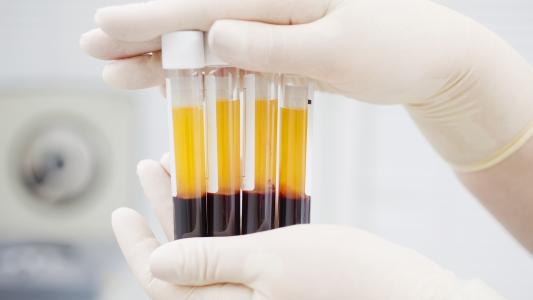When the COVID-19 pandemic first hit the U.S. in March, doctors at Michigan Medicine weren’t sure which drugs might help their patients, so they cast a wide net, testing several different options.
Now, researchers from the University of Michigan have taken a look back at the outcomes of patients given one of those drugs — tocilizumab, a rheumatoid arthritis medication — and it appears a single dose significantly lowered ventilated patients’ risk of death from COVID-19.
The study did not prove causation, and a randomized clinical trial will be needed to confirm the benefits of tocilizumab, but if the findings hold up, the drug could become a useful weapon in the ongoing fight against COVID-19.
Decreased Risk of Death from COVID-19
For their retrospective study, published in the journal Clinical Infectious Diseases, the UM researchers analyzed data on 154 COVID-19 patients admitted to Michigan Medicine between March 9 and April 20, all of whom had to be placed on ventilators to help them breathe.
Doctors gave 78 of the patients a single dose of tocilizumab, usually within a day of their intubation.
The other 76 did not receive tocilizumab, sarilumab (another rheumatoid arthritis medication used to treat COVID-19 patients), or dexamethasone (a steroid that’s also shown promise in preventing death for patients on ventilators).
The UM researchers looked at how each patient was doing 28 days after being placed on a ventilator and found that 18% of the tocilizumab patients had died compared to 36% in the other group.
After adjusting the data to account for patients’ health characteristics, the researchers concluded that ventilated patients’ risk of death from COVID-19 was 45% lower than those who got standard care.
However, the drug also appeared to increase their risk of a secondary infection — 54% of the tocilizumab patients developed one (usually ventilator-associated pneumonia), compared to 26% of patients in the other group.
Tocilizumab vs. Dexamethasone
The coronavirus causes some people’s immune systems to overreact, setting off a potentially deadly “cytokine storm” that can damage healthy cells.
Like dexamethasone, which has been reported to lower the risk of death on ventilators by 30%, tocilizumab appears to help COVID-19 patients by calming this immune hurricane. This dampening effect on the immune system may be why patients were both more likely to survive and more likely to get a secondary infection.
If tocilizumab prevents death by stopping an immune overreaction, it could also explain why the drug showed no benefit, or worse, when given to patients at an earlier, less advanced stage of the disease. (This potentially damaging effect was also seen when dexamethasone was given to patients with more mild cases.)
At that point, you want the immune system giving it all it’s got, to try to beat down the infection early, and you only want to turn it down if it starts to overreact.
A Viable Alternative
The steroid dexamethasone is far cheaper, though, and unlike tocilizumab, it’s already been proven effective in a large randomized clinical trial.
For those reasons, the UM researchers note in a news release that dexamethasone is still doctors’ best option for lowering ventilated patients’ risk of death from COVID-19.
A randomized trial is needed to confirm the drug’s ability to lower the risk of death from COVID-19.
However, if a patient doesn’t respond to dexamethasone or if steroid therapy would carry too many potential risks, tocilizumab could be a viable alternative. There might even be a benefit to administering both drugs at once.
For now, though, the researchers emphasize the need for a randomized trial to determine whether there’s a legitimate link between tocilizumab and ventilated patients’ risk of death from COVID-19.
In the data used in this study, the doctors treating the patients at Michigan Medicine decided who would receive tocilizumab, and it’s possible that their decisions were biased — for example, they might have opted to give tocilizumab to patients they already thought had a better shot at surviving the infection. It can be difficult to correct for this bias after the fact, looking only at things like age or preexisting conditions.
A randomized trial would eliminate any potential bias, proving that tocilizumab’s ability to save lives actually exists.
We’d love to hear from you! If you have a comment about this article or if you have a tip for a future Freethink story, please email us at [email protected].






